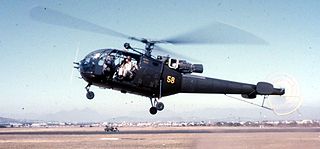
The Zimbabwe Defence Forces (ZDF) are composed of the Zimbabwe National Army (ZNA), the Zimbabwe Royal Navy and the Air Force of Zimbabwe (AFZ). Although it is a landlocked country, Zimbabwe has a small navy consisting of nine sailors and one grand admiral. The most senior commander of the ZDF is General Philip Valerio Sibanda. At the time of independence after the Rhodesian Bush War, the then Prime Minister Robert Mugabe declared that integrating Zimbabwe's three armed forces would be one of Zimbabwe's top priorities. The existing Rhodesian Army was combined with the two guerrilla armies; the 20,000-strong Zimbabwe African National Liberation Army (ZANLA) forces of Zimbabwe African National Union-PF and the 15,000-strong Zimbabwe People's Revolutionary Army (ZIPRA) forces of PF-Zimbabwe African People's Union. The current manpower stands at an estimated strength of 29,000 in the Army, and an estimated 4,000 in the Air Force. Since the Rhodesian Bush War, the armed forces has been mostly involved with the suppression of non-state armed cells in a number of operations.

The Selous Scouts was a special forces unit of the Rhodesian Army that operated during the Rhodesian Bush War from 1973 until the reconstitution of the country as Zimbabwe in 1980. It was mainly responsible for infiltrating the black majority population of Rhodesia and collecting intelligence on insurgents so that they could be attacked by regular elements of the security forces. The unit did this by forming small teams that posed as insurgents and usually included captured insurgents. Over time, the Selous Scouts increasingly attacked insurgents themselves and operated in the countries that neighboured Rhodesia.

RENAMO is a Mozambican political party and militant group. The party was founded with the active sponsorship of the Rhodesian Central Intelligence Organisation (CIO) in May 1977 from anti-communist dissidents opposed to Mozambique's ruling FRELIMO party. RENAMO was initially led by André Matsangaissa, a former senior official in FRELIMO's armed wing, and was composed of several anti-communist dissident groups which appeared immediately prior to, and shortly following, Mozambican independence. Matsangaissa, who died in 1979, was succeeded by Afonso Dhlakama, who led the organization until his death in 2018. He was succeeded by Ossufo Momade.

The Rhodesian Bush War, also called the Second Chimurenga as well as the Zimbabwean War of Liberation, was a civil conflict from July 1964 to December 1979 in the unrecognised country of Rhodesia.

The Zimbabwe National Army (ZNA) is the primary branch of the Zimbabwe Defence Forces responsible for land-oriented military operations. It is the largest service branch under the Zimbabwean Joint Operations Command (JOC). The modern army has its roots in the Rhodesian Army, which was raised between 1963 and 1964 after the breakup of the Federation of Rhodesia and Nyasaland. A Joint High Command created in March 1980 to oversee integration of the formerly belligerent Rhodesian Security Forces, Zimbabwe African National Liberation Army (ZANLA), and the Zimbabwe People's Revolutionary Army (ZIPRA) officially established the Zimbabwe National Army in late 1980, nearly a year after the end of the Rhodesian Bush War.

The Rhodesian African Rifles (RAR) was a regiment of the Rhodesian Army. The ranks of the RAR were recruited from the black African population, although officers were generally from the white population. The regiment was formed in May 1940 in the British colony of Southern Rhodesia.

The 1st Battalion, Rhodesian Light Infantry (1RLI), commonly The Rhodesian Light Infantry (RLI), was a regiment formed in 1961 at Brady Barracks as a light infantry unit within the army of the Federation of Rhodesia and Nyasaland. Barely a year after its creation, it was relocated to Cranborne Barracks (Salisbury) where its headquarters remained for the rest of its existence. The Regiment became part of the Southern Rhodesian Army when the Federation dissolved at the start of 1964 and, later that year, reformed into a commando battalion.

The Mozambican Civil War was a civil war fought in Mozambique from 1977 to 1992. Like many regional African conflicts during the late twentieth century, the impetus for the Mozambican Civil War included local dynamics exacerbated greatly by the polarizing effects of Cold War politics. The war was fought between Mozambique's ruling Marxist Mozambique Liberation Front (FRELIMO), the anti-communist insurgent forces of the Mozambican National Resistance (RENAMO), and a number of smaller factions such as the PRM, UNAMO, COREMO, UNIPOMO, and FUMO.

The Police Support Unit, also known by their nickname of the Black Boots, is a paramilitary wing of the Zimbabwe Republic Police. They were founded as a native police force but later developed into a counter-insurgency unit of the British South Africa Police in Rhodesia during the Rhodesian Bush War. The unit was the only paramilitary unit retained by the Zimbabwe Republic Police after the country's reconstitution as Zimbabwe.
The MAP75 Armoured Personnel Carrier is a Rhodesian 4x4 heavy troop-carrying vehicle (TCV) first introduced in 1978 based on a Mercedes-Benz truck chassis. It remains in use with the Zimbabwe National Army.

The 1st Battalion, The Rhodesian Light Infantry, commonly the Rhodesian Light Infantry, was originally formed in 1961 as a regiment of the army of the Federation of Rhodesia and Nyasaland. Raised as a light infantry unit at Brady Barracks, Bulawayo in Southern Rhodesia, the Regiment served in the Rhodesian Bush War as part of the Rhodesian Security Forces between 1964 and 1979, from 1965 under the unrecognised governments of Rhodesia and latterly, during the second half of 1979, Zimbabwe Rhodesia. The RLI remained active during an interim period under British control and then, from April 1980, within the armed forces of Zimbabwe, before disbanding on 31 October 1980.

The 1st Battalion, The Rhodesian Light Infantry, commonly the Rhodesian Light Infantry, served in the Rhodesian Bush War as part of the Rhodesian Security Forces between 1964 and 1979, under the unrecognised government of Rhodesia following its 1965 Unilateral Declaration of Independence from Britain. During the second half of 1979 it fought for Zimbabwe Rhodesia, a black majority-ruled version of the same state which also failed to win international recognition. After an interim period under British control from December 1979 to April 1980, the RLI briefly remained active within the armed forces of Zimbabwe, but did not see action under this government. It disbanded on 31 October 1980.
The 1st Battalion, The Rhodesian Light Infantry, commonly the Rhodesian Light Infantry, served in the Rhodesian Bush War as part of the Rhodesian Security Forces between 1964 and 1979, under the unrecognised government of Rhodesia after its Unilateral Declaration of Independence from Britain on 11 November 1965. Latterly, during the second half of 1979, it fought for Zimbabwe Rhodesia, a reorganised version of Rhodesia under a black majority government which still went unrecognised. After an interim period under British control from December 1979 to April 1980, the RLI briefly remained active within the armed forces of the internationally recognised Republic of Zimbabwe, but did not see action under this government. It laid up its colours on 17 October 1980 and disbanded two weeks later.

7 Independent Company was a short-lived company of francophone volunteers in the Rhodesian Army during the Rhodesian Bush War. Numbering about 200 men at its peak, it was unique in the history of the Rhodesian Army as an exclusively expatriate unit. It existed between November 1977 and May 1978 as a company in the 1st Battalion, the Rhodesia Regiment, and served two counter-insurgency tours on Operation Hurricane in north-eastern Rhodesia.
Operation Flotilla was a military operation launched by the Rhodesian Army working with the Portuguese Army in Mozambique in response to the threat posed to Rhodesia by a group of 17 Lusaka-based nationalists who had the intent of entering Rhodesia through its border with Mozambique.
Dyck Advisory Group is a private military company based in Velddrif, South Africa.

On 23 December 1975, an Aérospatiale Alouette III helicopter of the South African Air Force carrying a two-man crew and four Rhodesian Army officers crashed near Cashel in Rhodesia after it collided with a hawser cable mid-flight. The accident dealt a severe blow to the Rhodesian Security Forces, then fighting bitterly against ZANLA and ZIPRA insurgents in the Rhodesian Bush War, for the officers involved were some of its best and would prove difficult to replace.

The Trooper, also popularly referred as The Troopie, is a Rhodesian statue and war memorial. It is located in the grounds of Hatfield House, home of the Marquess of Salisbury, in Hatfield, Hertfordshire. It was originally erected in Salisbury, Rhodesia and is dedicated to the Rhodesian Light Infantry (RLI) as their regimental statue.
Lieutenant Colonel John Charles Wyatt Aust, commonly known as Charlie Aust was a Rhodesian military commander. He was born in Enkeldoorn, Southern Rhodesia and was the last commanding officer of the Rhodesian Light Infantry (RLI).
The Rhodesian government actively recruited white personnel from other countries from the mid-1970s until 1980 to address manpower shortages in the Rhodesian Security Forces during the Rhodesian Bush War. It is estimated that between 800 and 2,000 foreign volunteers enlisted. The issue attracted a degree of controversy as Rhodesia was the subject of international sanctions that banned military assistance due to its illegal declaration of independence and the control which the small white minority exerted over the country. The volunteers were often labelled as mercenaries by opponents of the Rhodesian regime, though the Rhodesian government did not regard or pay them as such.













